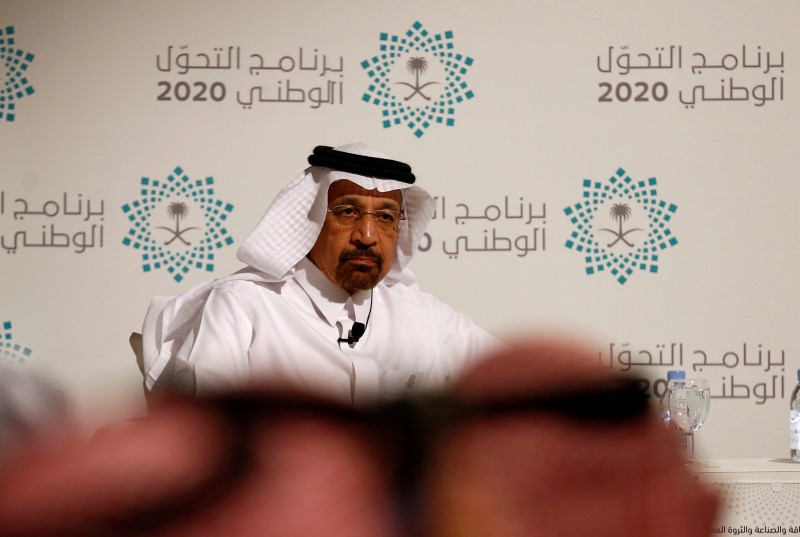Investing.com - Oil prices were higher during early New York trading on Thursday, reversing earlier losses after Saudi Energy Minister Khalid al-Falih said he was optimistic that OPEC would formalize a preliminary oil output deal reached in Algeria in September.
He said talks were ongoing with Qatar's Energy Minister Mohammed al-Sada, who had invited him to Qatar to continue discussions.
His comments came after Russian Energy Minister Alexander Novak said on Wednesday that Russia is ready to support OPEC's decision on an oil output freeze and sees big chances that the oil producers' group can agree on the terms of the freeze by November 30.
He also said there was a possibility he could meet Saudi Arabia's Energy Minister Khalid al-Falih at a gas conference in Doha this week.
Brent oil for January delivery on the ICE Futures Exchange in London tacked on 80 cents, or 1.72%, to $47.43 a barrel by 7:22AM ET (12:22GMT), after falling 0.7% the day before.
The oil group reached an agreement to cap output to a range of 32.5 million to 33.0 million barrels per day in talks held in Algeria in late September. However, OPEC said it won’t finalize details on individual output quotas until its next official meeting in Vienna on November 30.
The cartel pumped 33.64 million barrels of crude per day in October. The figures added to skepticism over the implementation of a planned deal by OPEC to limit production.
The possibility that producers could walk away empty-handed from the November meeting looms large after Iraq, Iran, Nigeria and Libya all signaled they might not take part in the proposed production cut deal. Russia’s unclear stance is also fueling uncertainty.
Elsewhere, crude oil for December delivery on the New York Mercantile Exchange inched up 67 cents, or 1.47%, to $46.24 a barrel during morning hours in New York.
It lost 0.5% in the prior session after data showed that crude supplies rose the third straight week.
The U.S. Energy Information Administration said that crude oil inventories rose by a more-than-expected 5.3 million barrels to 490.3 million last week, which the EIA considered to be “historically high levels for this time of year”.
